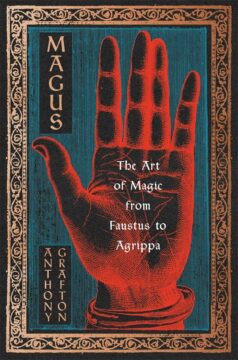Stephanie Merritt at The Guardian:
 In 1519, the German scholar Heinrich Cornelius Agrippa intervened to secure the release of a poor woman accused of witchcraft by a zealous inquisitor, who claimed that such women conceive children by demons. “Is this how theology is done nowadays, using nonsense of this sort to put innocent little women to the rack?” Agrippa demanded. The incident is recounted in Magus: The Art of Magic from Faustus to Agrippa, Anthony Grafton’s dense and fascinating study of the evolution of magic through the 15th and 16th centuries, and it illustrates some of the contradictions and divisions that made the understanding and pursuit of hidden knowledge so fraught at the time. Grafton, a professor of history and the humanities at Princeton University, shows that “magic” was a vast umbrella term encompassing everything from love philtres and homespun remedies involving the bones of toads, to proto-scientific disciplines such as cryptography, optics and engineering. When practised by women and unlettered people (not to mention those of other faiths), it usually led to accusations of witchcraft, but articulated and published by learned men, it resulted in books that became the international bestsellers of their day.
In 1519, the German scholar Heinrich Cornelius Agrippa intervened to secure the release of a poor woman accused of witchcraft by a zealous inquisitor, who claimed that such women conceive children by demons. “Is this how theology is done nowadays, using nonsense of this sort to put innocent little women to the rack?” Agrippa demanded. The incident is recounted in Magus: The Art of Magic from Faustus to Agrippa, Anthony Grafton’s dense and fascinating study of the evolution of magic through the 15th and 16th centuries, and it illustrates some of the contradictions and divisions that made the understanding and pursuit of hidden knowledge so fraught at the time. Grafton, a professor of history and the humanities at Princeton University, shows that “magic” was a vast umbrella term encompassing everything from love philtres and homespun remedies involving the bones of toads, to proto-scientific disciplines such as cryptography, optics and engineering. When practised by women and unlettered people (not to mention those of other faiths), it usually led to accusations of witchcraft, but articulated and published by learned men, it resulted in books that became the international bestsellers of their day.
more here.
